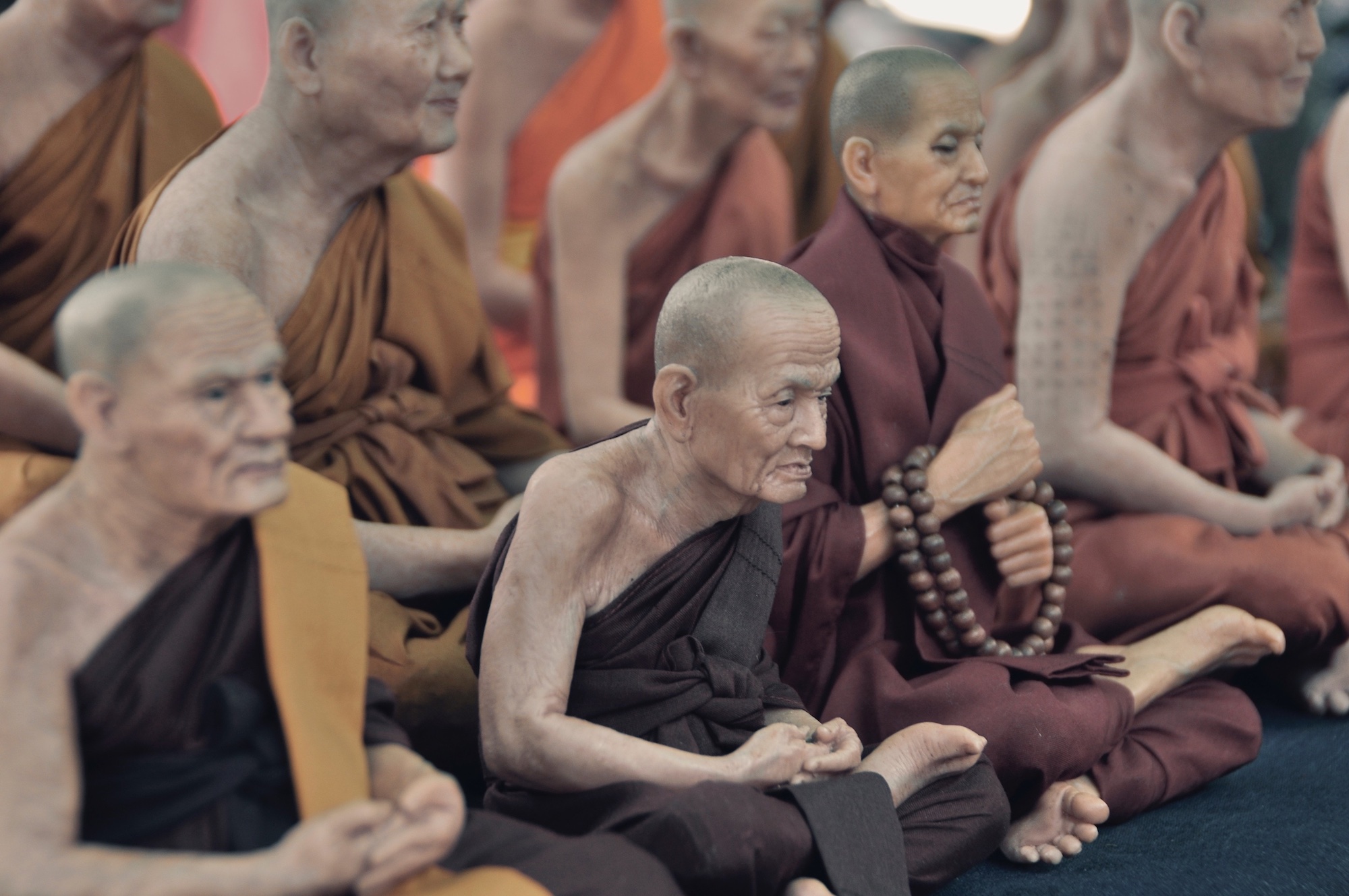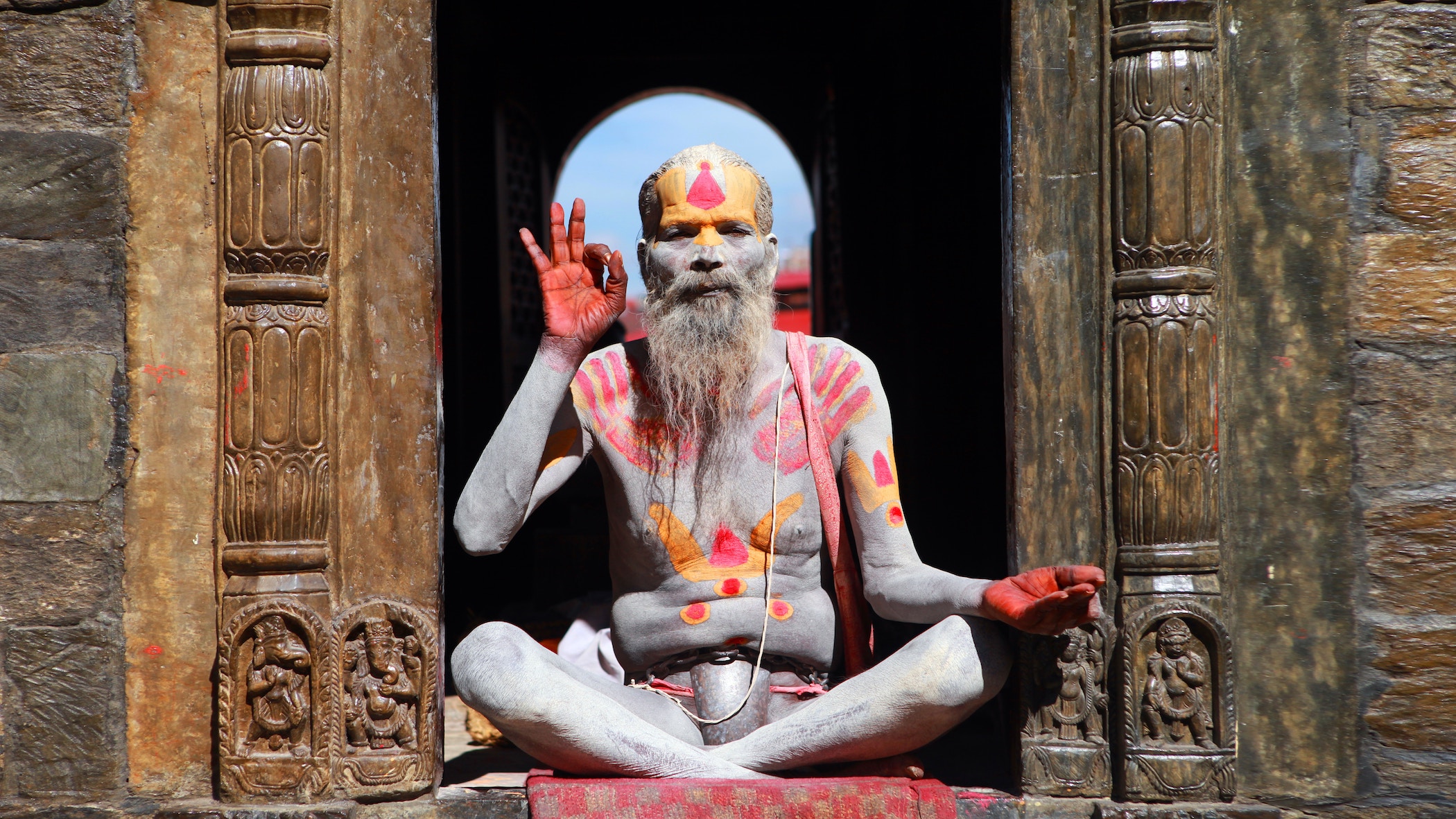Meditation
Attain New Levels of Health, Harmony, and Self-Understanding
 Meditation is an ancient practice used for stress management, reinforcement of mental focus, the deepening of one's spiritual life, and a person's overall happiness.
Meditation is an ancient practice used for stress management, reinforcement of mental focus, the deepening of one's spiritual life, and a person's overall happiness.Meditation evolved largely in ancient India, but is mentioned in the Bible and is important to several religions. Thomas Merton, a famous Trappist monk, wrote about the beauty of contemplation, and advocated the use of meditation to lead a quiet, reflective life of inner peace and great spiritual power.
In reality, meditation can fit into your lifestyle regardless of your religious affiliation and can help in developing a simple, harmonious, and disciplined life of integrity, balance, and purpose. Meditation is food for the whole person, not just the soul, and can improve:
- motivation
- concentration
- attention
- well-being
- and focus.
Purposes and Benefits
A central goal of meditation is to achieve greater awareness of reality and the self. This holistic, life-affirming practice has opened many perceptual doors for people and helped them to achieve a profound awareness of life, others, and themselves.
Additionally, I have seen the regular practice of meditation help people overcome anger problems, decrease anxiety, manage stress, attain inner guidance, improve relationships, as well as, to achieve greater health, vitality, and happiness.
These benefits are by-products of regular and sustained practice. According to new research, meditating regularly appears to change the brain and may lead to transformational changes in a person's life.
What Happens When We Meditate
 A tonic for the emotions, meditation can lift one's spirits and bring focus to blurry or confused feelings.
A tonic for the emotions, meditation can lift one's spirits and bring focus to blurry or confused feelings.- We become more balanced and feel more deeply connected with all of life.
- Petty pressures and worries melt away as we move into more soul-satisfying and informed levels of awareness and insight.
- We may feel enveloped by a universal love and feel a stronger sense of subjective well being (happiness).
- Fear and anxiety slowly dissipate.
- A blissful condition of profound relaxation fills the mind and body, bringing about a greater unity, along with a deeply felt sense of belonging and purpose.
Over the years, I have taught a number of stress management techniques to my clients and led numerous workshops on the topic, and I can say from personal and professional experience there is hardly a better way to reduce stress than by meditating!
Of all the stress reduction techniques I personally use, meditation is my favorite; I believe it has the most long-lasting and far-reaching impact (based on more than 40 years of meditating experience).
A study at the University of Kentucky has shown the positive effects of meditation on lowering blood pressure and improving health.
A variety of bodily changes occur when a person meditates, such as a decrease in the rate of breathing and oxygen intake. The blood pressure and heart rate may decrease, and the brain emits more alpha waves, which are associated with relaxation.
Plus, a basic meditation routine may improve circulation and augment the immune system. Meditation has the power to activate pain management and healing potentials, too.
Anyone suffering from chronic pain can benefit from meditation.
A tonic for the emotions, meditation can lift one's spirits and bring focus to blurry or confused feelings. Yes, a clear vision often results from sitting in the blessed silence and letting the crazy chaotic world go away! Meditating can lead to mental clarity and a better understanding of relationships. Negative thought patterns and depressive symptoms may be lessened. Meditation can help the meditator to know himself better and overcome self-limiting barriers and may lead to enlightening creative discoveries.
On a spiritual level, meditation can help one connect with the divine source, and allows closer contact with the cosmic universe. It opens pathways for love, service and change, personal growth, inner development, and healing.
Tips For Getting Started
- You can find instruction on the practice of sitting meditation from a good teacher, high quality how-to-books, or by taking a meditation or yoga class.
- Practice at least once a week, but twice would be better. A friend of mine meditates every morning before work.
- To get the most out of your experience, meditate in the same room and prepare in the same way every time you meditate.
- You may begin your meditation by reading inspirational passages or reflecting on the positive.
- Sit in a comfortable position with your spine straight and begin by observing your breath. Breathe deeply for a few minutes, allowing yourself to relax. You may silently repeat a mantra, focus your mind on beautiful music playing in the background, or visualize yourself taking a journey to a beautiful, scenic place.
- In time, you will become progressively more relaxed, and you may develop a sense of profound peace and harmony. Remain in your tranquil state of mind, and listen for inner impressions or insights that may come to you. Take your time! Let your meditative experiences unfold slowly and lead you into a joyful stillness, open the doors of perception to intuitive knowledge, and unveil a deeper knowledge of your inner realities.
Although there are many different systems of meditation, philosophical approaches and varieties of meditative experience, you do not have to follow a specific model to get results. No matter where you begin your inner journey or what path you follow, with persistence you should come to essentially the same place. But it is always wise to obtain instruction from a qualified and experienced practitioner/trainer to begin.
You can meditate practically anywhere, and you may want to try a walking meditation the next time you are in a place of great natural beauty, such as a state park or national forest. With a little practice and effort, you'll find meditation is easy to learn. It will help you to relax, manage stress and lead a happier, more contemplative life.
For more information on conducting state-of-the-art relationships, the latest research on true happiness, and Richard's products and services, subscribe to our newsletter!





